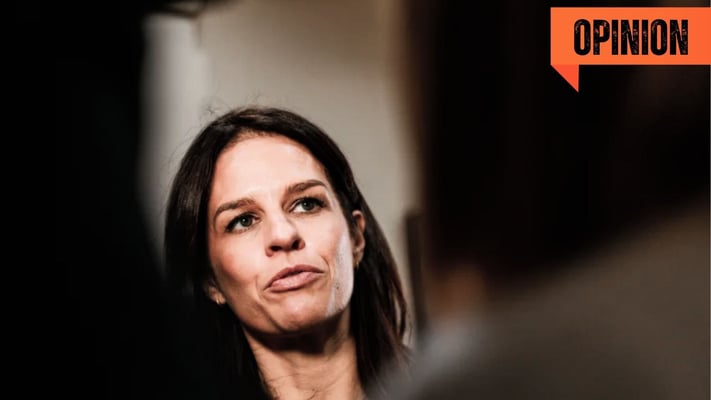Immigration Min Knows Work Visas Are Delayed, What’ll She Do About it?

It’s not immediately clear how to feel when Erica Stanford says she knows about the frustrating delays in procuring work visas.
“I acknowledge that processing timeframes for AEWV [Accredited Employer Work Visa] are longer, causing immense headaches for business,” she told a gathering of the Employers and Manufacturers Association (EMA) on August 16, 2024.
It comes off as quite empathetic, at first – the immigration minister acknowledging public anxiety, showing that she hears you. But wait. Isn’t she the one supposed to end that anxiety?
Stanford has steered New Zealand’s immigration apparatus for nearly seven months now. Should we be grateful that she understands our frustration or upset that the frustration persists? Either way, the minister does make a point hard to dispute–she didn’t walk into a bed of roses.
At the EMA event, she said in rolling out the AEWV scheme her predecessors in the Labour government set up a very high trust model “in a world that was seeing increased risk”.
“The timeframes the previous government set for processing were never realistic.”
The Labour government introduced AEWV in 2022 to make overseas hiring easier for businesses hammered by Covid-19. A flood of migrants was needed to provide the legs the economy needed to run once normalcy returned post-pandemic–and the government opened the floodgates.
Employers bagged accreditation thick and fast and hired overseas workers in bulk. Good or bad, the scheme did lend itself to abuse. Agents and employers ensnared hundreds of migrants in visa scams.
“It was never going to take 10 days to process an employer accreditation, 10 days to process a job check or 20 days to process a visa,” Stanford pointed out.
All that is water down the bridge though. Public memory is short, and perception matters. The hardship businesses are facing now in hiring overseas workers is excruciating. The Ministry of Business, Innovation and Employment (MBIE), the country’s main agency tasked with immigration control, has pared staff as part of the government’s fiscal austerity measures.
So how does Stanford plan to walk the tightrope? We don’t know yet. In her speech to the EMA, she did say “fundamental changes are required” but didn’t elaborate on what these changes might look like.
“Our goal with the changes we are making is to create a system that focuses on precious resource where it is needed the most–high risk employers, high risk sectors and high-risk applicants.
“Meanwhile, those good employers who have been around for a long time, who have a great record with INZ, who make genuine attempts to hire kiwis and who we can trust more, should get a far lighter touch.
“The goal is a smarter, more nuanced system that gets that balance right between speeding up processing, while still maintaining the integrity of our borders.”
It’s not immediately clear how to feel when Erica Stanford says she knows about the frustrating delays in procuring work visas.
“I acknowledge that processing timeframes for AEWV [Accredited Employer Work Visa] are longer, causing immense headaches for business,” she told a gathering of the...
It’s not immediately clear how to feel when Erica Stanford says she knows about the frustrating delays in procuring work visas.
“I acknowledge that processing timeframes for AEWV [Accredited Employer Work Visa] are longer, causing immense headaches for business,” she told a gathering of the Employers and Manufacturers Association (EMA) on August 16, 2024.
It comes off as quite empathetic, at first – the immigration minister acknowledging public anxiety, showing that she hears you. But wait. Isn’t she the one supposed to end that anxiety?
Stanford has steered New Zealand’s immigration apparatus for nearly seven months now. Should we be grateful that she understands our frustration or upset that the frustration persists? Either way, the minister does make a point hard to dispute–she didn’t walk into a bed of roses.
At the EMA event, she said in rolling out the AEWV scheme her predecessors in the Labour government set up a very high trust model “in a world that was seeing increased risk”.
“The timeframes the previous government set for processing were never realistic.”
The Labour government introduced AEWV in 2022 to make overseas hiring easier for businesses hammered by Covid-19. A flood of migrants was needed to provide the legs the economy needed to run once normalcy returned post-pandemic–and the government opened the floodgates.
Employers bagged accreditation thick and fast and hired overseas workers in bulk. Good or bad, the scheme did lend itself to abuse. Agents and employers ensnared hundreds of migrants in visa scams.
“It was never going to take 10 days to process an employer accreditation, 10 days to process a job check or 20 days to process a visa,” Stanford pointed out.
All that is water down the bridge though. Public memory is short, and perception matters. The hardship businesses are facing now in hiring overseas workers is excruciating. The Ministry of Business, Innovation and Employment (MBIE), the country’s main agency tasked with immigration control, has pared staff as part of the government’s fiscal austerity measures.
So how does Stanford plan to walk the tightrope? We don’t know yet. In her speech to the EMA, she did say “fundamental changes are required” but didn’t elaborate on what these changes might look like.
“Our goal with the changes we are making is to create a system that focuses on precious resource where it is needed the most–high risk employers, high risk sectors and high-risk applicants.
“Meanwhile, those good employers who have been around for a long time, who have a great record with INZ, who make genuine attempts to hire kiwis and who we can trust more, should get a far lighter touch.
“The goal is a smarter, more nuanced system that gets that balance right between speeding up processing, while still maintaining the integrity of our borders.”










Leave a Comment